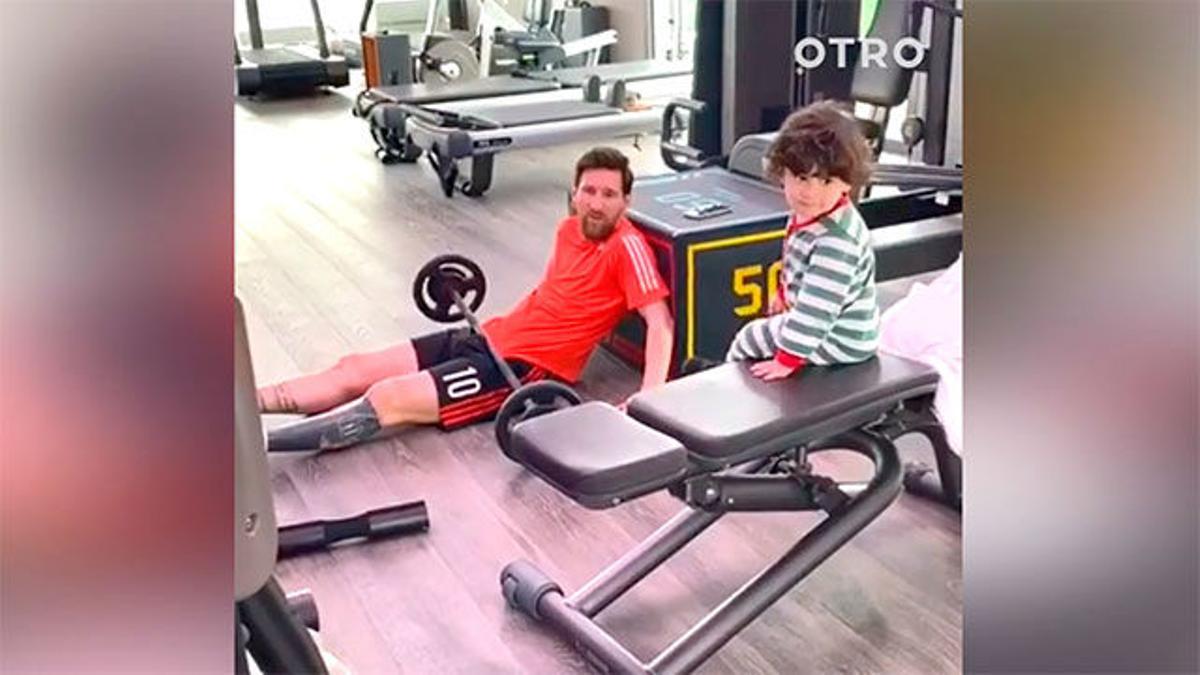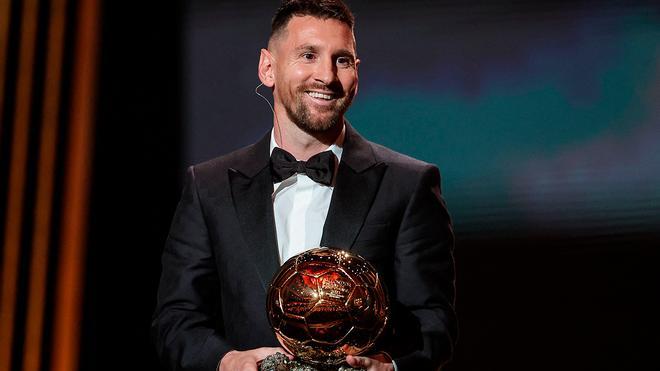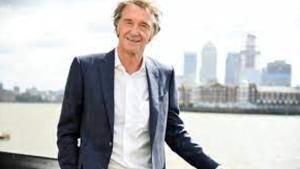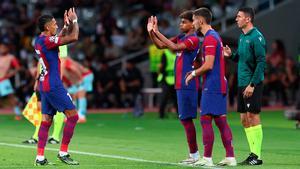Book extract: The Messi family's most dramatic decision
SPORT offers an a section of the Messi biography written by the journalist Guillem Balague
The following is an extract from Guillem Balague's book on Lionel Messi, the only biography authorised by the Barcelona star.
In El Gráfico, years later, Leo explained how he felt as a 14-year-old when he was left alone with his father in Barcelona. ‘When I left, I cried a lot, I cried for everything that I was leaving in Argentina, but at the same time I had a dream and I knew it was for the better.’ Sometimes he hid quietly in his bedroom. ‘I locked myself in my room and cried. I didn’t want my father to see me.’ The youngsters at Barcelona used to go through the same routine that they still follow to this day: a bus would pick them up at the gates of La Masía, they’d go to school, eat together and then train, and then a few of them would rest in their rooms while the majority would be at the country house opposite the stadium, a home to hundreds of kids before the new Masía was inaugurated in 2011. Leo would sometimes go from school to home to eat something his father had cooked for him, watch television for a while, play on his PlayStation, or take a nap and then walk to training. Usually alone.
As the years passed he felt more comfortable with his team-mates and ended up having breakfast at La Masía; there, instead of going to school, he would benefit from the help from a teacher who would assist him and other players, who, because of match journeys or the hours of training, or more likely through lack of enthusiasm, did not make a habit of attending the Lleó XIII school. Nonetheless there were still many free hours to kill.
After half of his family had gone back to Argentina, the time when Leo did not have a ball at his feet began to drag. Jorge did what he could to entertain him. He would challenge his son on the PlayStation and they would often leave the apartment and stroll to El Corte Inglés or to Les Corts, the residential and commercial district crossed by the long Avenida Diagonal. No pitches there, or many parks either, on which to improvise a game of football. Jorge became his companion around the city, a playmate in any games, a temporary substitute for his friends, his moral support and the backbone of Leo’s life in Barcelona. At the stage when most boys in their mid-teens are looking for any excuse to rebel against their parents, Leo, a ‘boy-man’, a kid with the responsibilities and experiences of a grown-up, found protection under his father’s wing.
(…)
Jorge, in his self-imposed role of single parent, aimed to rear Leo with a firm set of principles, not least a respect for authority and a clear appreciation of his roots. In this he has been successful. The problem for any single parent, coping with the breakup of the family unit, is to avoid over protection. And yet over-protection is inevitable as they attempt to ward off accusations that the child is not being sufficiently well cared-for. But when he says to his son, ‘don’t forget those who ask you for an autograph have spent hours waiting for you’, as he has had to on some occasions, is it the manager or the father talking? In the worst of cases, when the father is unable to clearly separate the two roles, a situation can arise that is recognised by many sports psychologists: at the time when the father is playing the role of manager, the son is an orphan. And he looks for a father figure elsewhere.
(…)
And how does a footballer cope with this situation? At the end of the day he is the one responsible for the family upheaval. All successful players are not just aware of their sacrifices, but also feel an infinite debt of gratitude for everything their fathers, mothers, brothers, sisters have done, because without their efforts they would not have got to where they have. But there’s more: at the same time they also carry a large feeling of guilt because they have broken the lives of those closest to them. So the son, to compensate, buys houses for the parents; he becomes a provider. And in the process the bricks and mortar serve as tangible evidence that effectively their lives have been turned around.
(…)
Maybe it is because of these difficulties of dealing with a broken family that Jorge admitted he would not have split up the family.
(…)
Back home, Matías showed his mother how to use the webcam so she was able to keep in touch with Leo, who in any case chatted to her every day on the internet and telephoned her every three days. Celia never failed to cry whenever she spoke to her son. And whenever she saw him on television.
Curiously where evidence of all this is seen the least is on the training ground, where players tend to hide any perceived weaknesses.
(…)
Neither the players nor the trainers at La Masía knew that Leo cried at night alone in his bedroom. ‘It seemed like he was managing everything quite well,’ remembers Alex García, one of his academy coaches. ‘I think he was very clear about one thing: he knew what he’d done: “I have been separated from my mother and my brothers because I want to be a footballer; I don’t know how far I’ll get, or how long I’ll last, but I know that I want it.” He knew that would require sacrifices and cause suffering. I asked him how he was, because after all he was so far away from his family, and he said to me: “well, my mother is coming now with my brothers.”’
No room for weakness in public. But the kid gave away clues: after spending three hours training, if you count the time getting there, changing, warm-up, exercises and shower afterwards, Leo always wanted to stay on the pitch a bit longer.
***
For a young footballer, someone who has not yet made it to the first team, this is what loneliness is: six o’clock on a Sunday afternoon, already dark if it’s winter, a few hours after the morning game, in your house, a long way from home. The rest of the evening stretches before you. No one to go out with, nowhere to go anyway, tucked up in bed after supper, with only the sound of the television or, in the case of Leo, his father’s ‘goodnight’ … hard, very hard.
Sometimes Leo avoided those long afternoons by taking a long time over lunch in one of several Argentinian restaurants. Or sharing a new Xbox with a team-mate from one of the youth teams or an Argentinian friend from another club. He watched Argentinian television, followed the Argentinian league. His favourite films were the Argentinian El hijo de la novia (‘The Son of the Bride’) and Nueve reinas (‘Nine Queens’); his favourite actor fellow countryman Ricardo Darín. Leo never lost his Argentinian accent, or the customs of his country. He ended up recreating a sort of Rosario in Barcelona. ‘I have always said that he is the most Argentinian footballer from Argentina that I have ever known,’ said Cristina Cubero, who was very close to him during his first, tentative steps in Spain.
(…)
At this stage, Barcelona had asked him to have breakfast regularly at La Masía, which he and the others were given as part of the endocrinological work carried out by the club relating to the players’ diet. At the same time the club doctor, Josep Borrell, decided to gradually wind down the growth hormone treatment Messi had been receiving. At the age of 14, a controlled diet and a suitable physical fitness programme would, in the doctor’s opinion, help him to reach his maximum height without further hormone treatment. ‘In Spain he grew in a way that you wouldn’t believe,’ remembered Jorge Messi in El Gráfico. In fact, he grew 29 centimetres in as many months. But he often swapped his diet for the restaurants of his Argentinian friends who would feed him up with gigantic Scaloppe Milanese with potatoes, and milk pudding to finish.
After a few months in Rosario, Leo’s brother Rodrigo returned permanently to Barcelona with Florencia, now his wife, and their baby son, Agustín, who Leo spent hours looking after. (…) His brother worked as a chef at the Hotel Rally and at El Corte Inglés, and was even in touch with Ferran Adrià, the legendary chef-owner of El Bulli, who had a workshop in Barcelona. He could have worked with Adrià, but preferred to look after his brother.
Leo relied on others to look out for him as protectors. Pablo Zabaleta was one such person. Zabaleta was captain of the Argentinian Under 20 side with which Leo played his first international matches and they sealed their friendship when the wing-back played for RCD Espanyol of Barcelona. He willingly took Leo under his wing, extricating him from restaurants when he started to become recognised, advising him, guiding him and helping him steer clear of dubious company.
Leo bought a dog, Facha, a boxer he used to take for walks around Castelldefels. Another companion.
Oscar Unari, another friend of Leo’s, who today plays for Almeria, shared many confidences. ‘If there’s one thing that he won’t talk about, one thing that hurt him, it’s his uprooting. It happened to me. I’m from a small town, much smaller than Rosario, with 15,000 inhabitants, and as a thirteen-year-old I started to go around on my own, without a father, or a mother, to find my life in Buenos Aires. From a town of 15,000 to a concrete jungle.’
(…)
Leo went through much physical and psychological pain before becoming the very best at what he does. You need that strength in football in order to reach the finishing line, and you need the ability to make sacrifices. And perseverance.
But it was many years before he stopped crying after speaking on the telephone to his mum.
This text is from the book: Messi, by Guillem Balague
Topics with the letter





